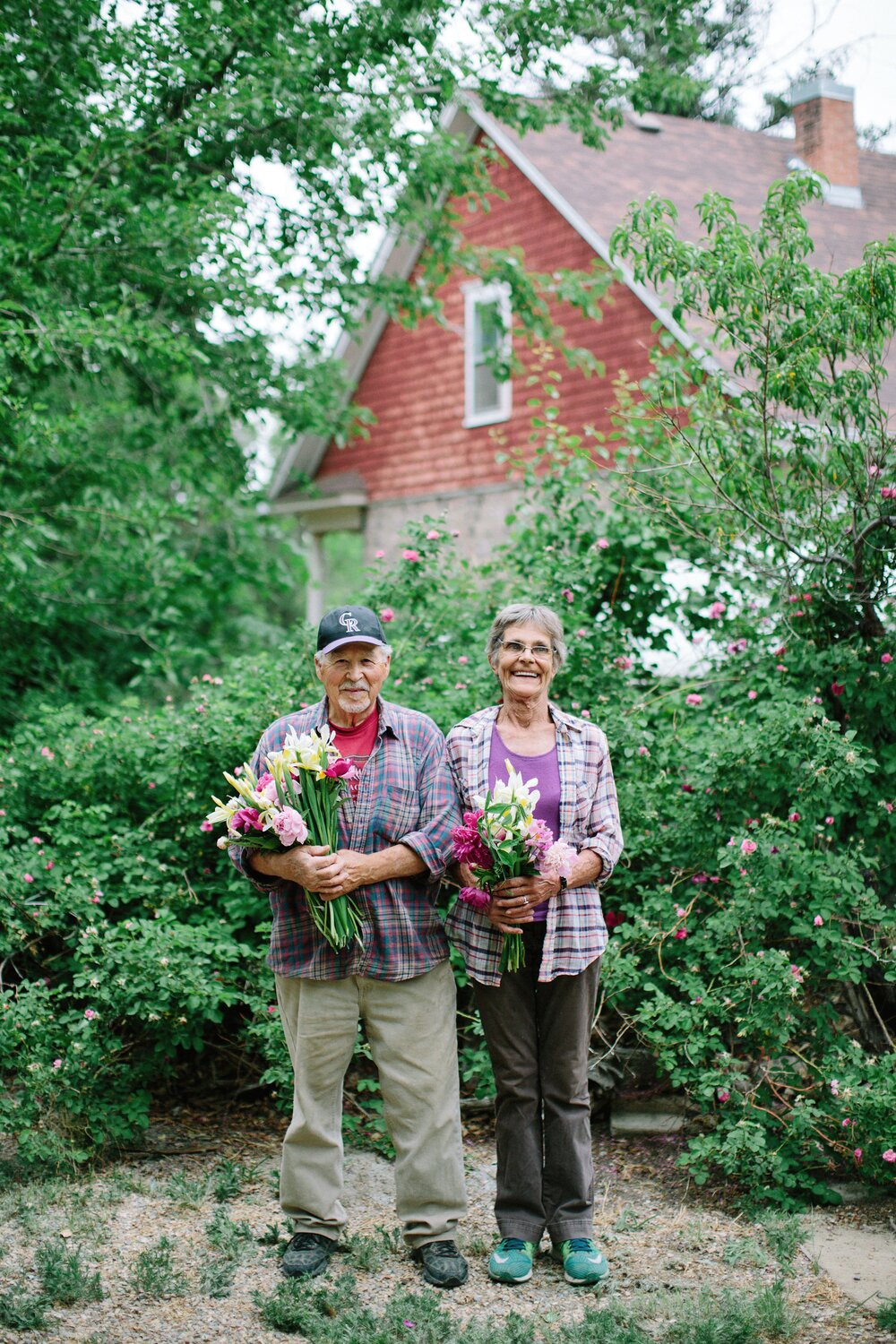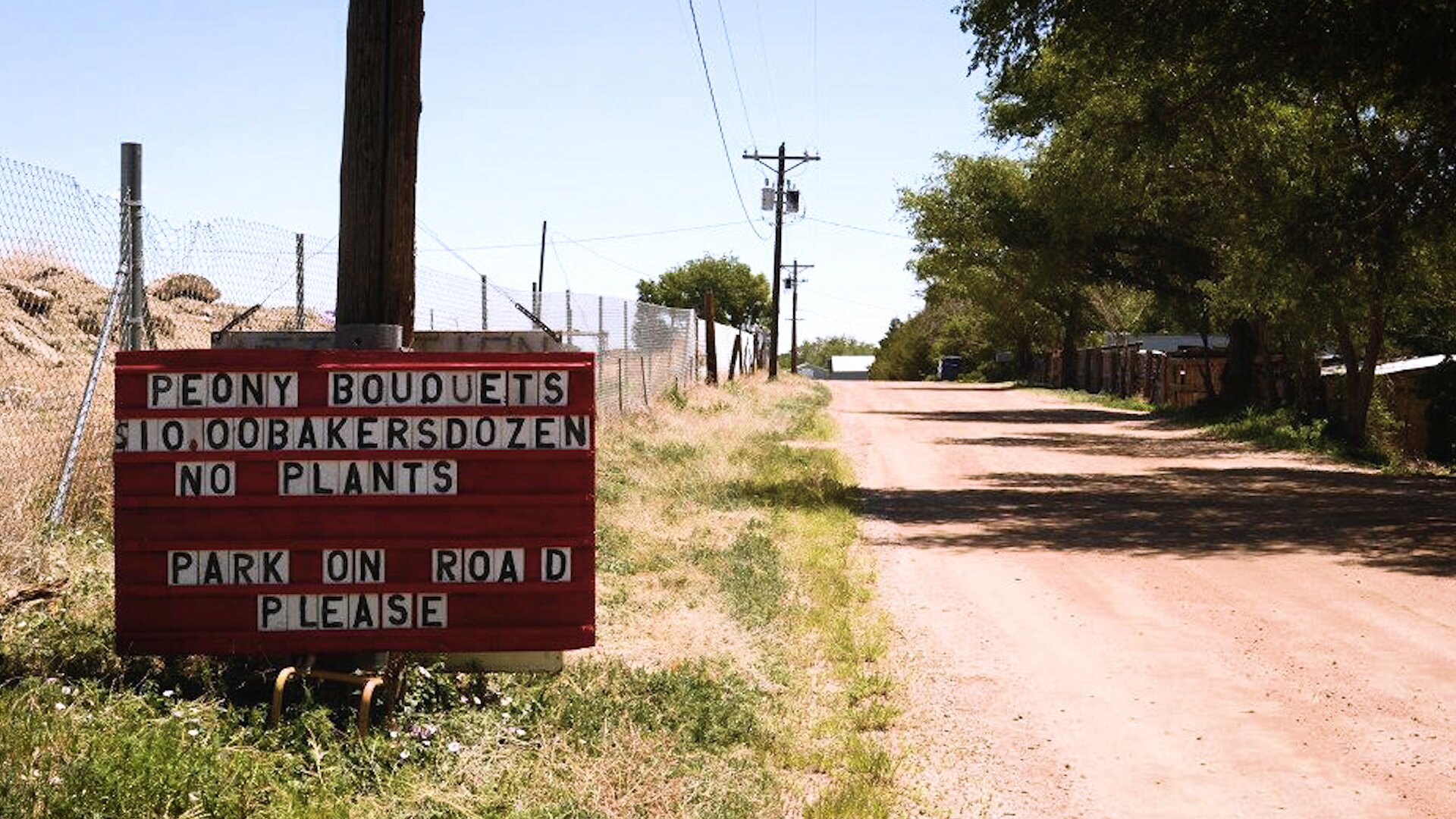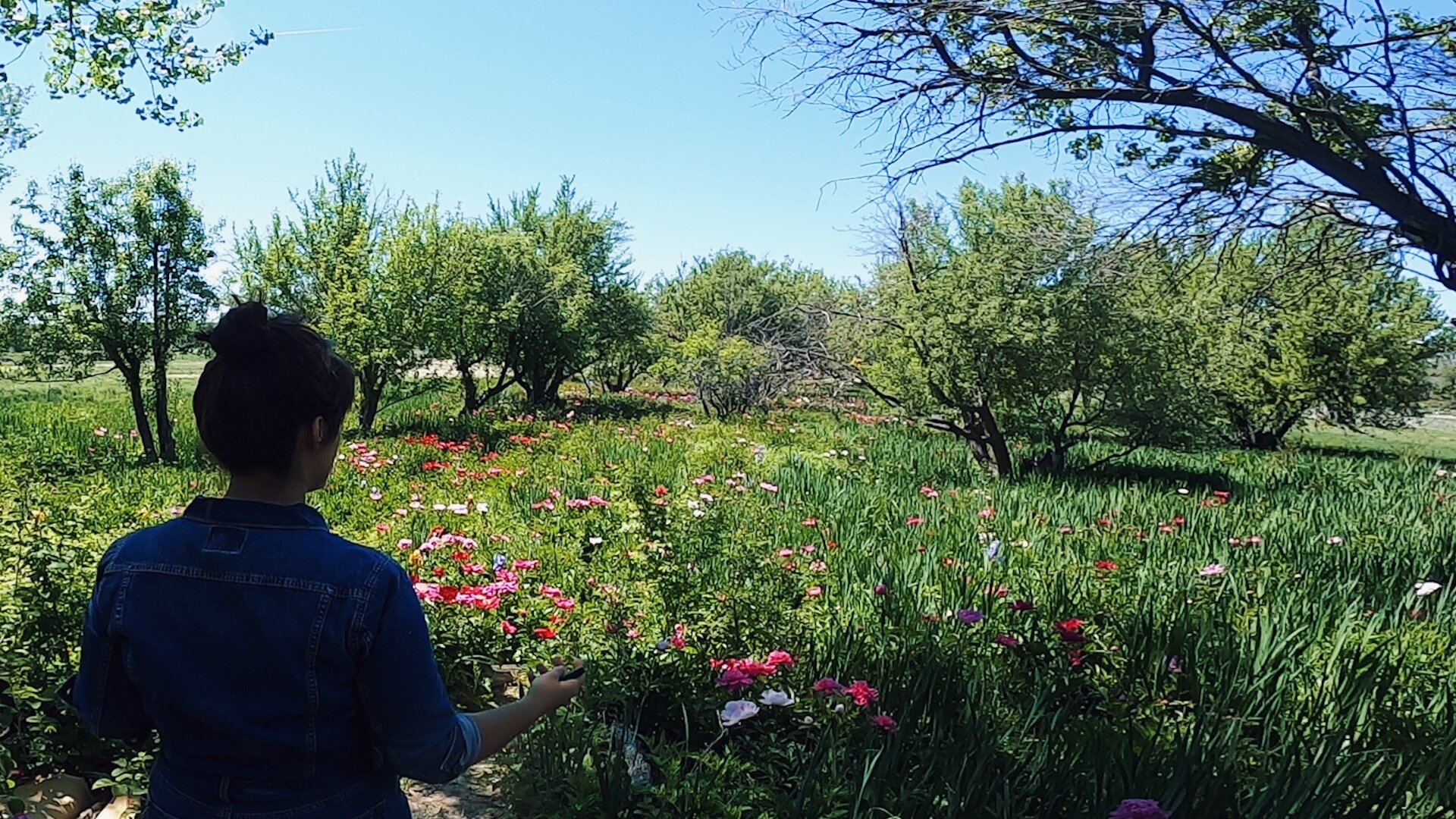Passion for Peonies: Generations rally for La Resolana farm

PUEBLO, Colo. — When Judy and Juan Trujillo purchased a small farm in the floodplains of the Arkansas River in the 1960s, the previous owners didn’t bother to tell them about the peonies. Now decades later, the family is trying to figure out all the ways to keep the farm flourishing.
“They didn’t even know that the peonies were here,” said Gabriella Trujillo, granddaughter of the farm’s owners and among family who caretakes the land. “Then spring came, and the peonies came up. And I guess it just blew their minds,” she laughed.
“You’d think you’d mention an acre of peonies,” she said of the land’s previous stewards.
The peonies are one hundred years old, thought to have been planted to provide bouquets for nearby cemeteries. The field hosts multiple varieties, as well as iris, wild garlic, and more.
“It is such an interesting place,” Trujillo said.
The perennial flowers are now a hallmark of the land, attracting hundreds of visitors each year over Memorial Day weekend. The Trujillo family has shared their one-acre peony farm with the public for what would have been 50 years in 2020—had the farm not closed during the pandemic.

Her grandparents, who both grew up gardening, bought the property out of college. “I think they were pulled to grow things, and to have land and space,” said Trujillo.
They named the farm La Resolana, a term for the south-facing side of a building or a place in the sun where people gather.
“It has served for these 50 years as a gathering place,” said Trujillo. ”It has always been that.”
Each year, Trujillo family members come from near and far to help cut and bundle flowers over the course of the weekend. Many community members have been coming to the farm over Memorial Day for decades. The original settler’s cabin, dubbed Homestead House, turns into a place for processing thousands of peonies that are sold for a small donation to help cover the costs of water.
“Typically in a weekend we’d have 400 to 500 people come,” Trujillo said.
In 2019, that all changed.
“I think it’s probably my fault, because that’s the year I made a Facebook page for the farm,” said Trujillo. “And it just exploded. Everybody wanted to come and take Instagram photos. We had 5,000 people come that year. That’s ten times what we’re used to.”
The family began reassessing the farm’s operations, and how to accommodate more guests. “Then COVID happened,” said Trujillo. “These two years have been good to rethink what we’re doing and what our plans are.”
During that time, the nature of the farm’s disrepair came to light, said Trujillo. After fifty years of tending to the flowers, her grandparents could no longer take care of the land themselves. She was summoned home by her family, and said it “felt like an emergency” when her aunt reached out about the condition of the farm.
“I came here thinking the issue was going to be getting the plants water — and it is,” said Trujillo. “The flowers weren’t getting watered, and irrigation is a primary need. But there’s so much more than that.”
For her grandparents, shifting responsibility on the farm means a slight of independence. “I’ve heard people compare it to taking away your grandparent’s ability to drive. It does very much feel like that,” Trujillo said. “It’s definitely a transition period.”
Trujillo said she saw herself taking over the farm sometime down the line but didn’t think it was going to be so soon until she realized the place needs more care than it’s been getting.

Another huge obstacle for the future is the viability of a flower farm in an age of perpetual drought.
“We’ve talked about water my whole life, that it was going to be getting more and more scarce,” said Trujillo. “We’ve been in a drought my whole life, so I don’t know what a not-drought looks like,” she said of her hometown of Pueblo.
Walking the old irrigation ditch of the land, established before Colorado was a state, Trujillo links the sale of the property’s first water right to the now-unpredictable landscape.
“This whole community sold their water rights in the 70s, and I think that did change the landscape a lot, not having the water come through here,” she said of the now-dry irrigation canal.
Now, to get water for the flowers, Trujillo tells Rocky Mountain PBS a person must go to the water co-op and petition for how many acre feet of water they need. Her advice is to ask for more than you need because you’re probably not going to get that much.
“And the amount that we’ve been given, it gets less and less every year. Because there’s less and less water in the water table.”
Some years, like this one, there is rain so it's been okay. Others there is no rain — and no snow.
“There were so many historic farms settled here, because the area was once so fertile,” Trujillo said. “And now, it’s struggling.”

Walking through the family’s field of tall, vivid green grass with dots of pink, blossoming flowers, Trujillo sighs. Even though peonies themselves symbolize prosperity, good luck and love, keeping this farm alive is an uphill battle.
“It feels monumental. Just the obstacles, and trying to figure out how to keep this place going, and what it looks like down the line,” she said. “There is a community surrounding us, and for the most part they know that this isn’t a profitable thing, but it can feel really exhausting. This year has definitely felt exhausting.”
Still, she plans to do all she can to keep the bouquets coming and her grandparents legacy going.
“Physically being down here,” Trujillo said, scanning the field, “it feels sacred, and worth saving.”
Trujillo began a Go Fund Me this year to fundraise for the flowers and the farm.
You can also follow the La Resolana farm on Instagram.
Kate Perdoni is a multimedia journalist for Rocky Mountain PBS and can be reached at kateperdoni@rmpbs.org.
